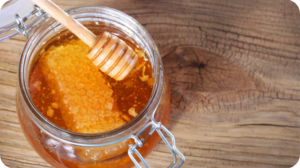Nobody wants to deal with a bout of flu, but as vaccines and immunizations increasingly come under the glare of public scrutiny and are the focus of rampant misinformation, more and more people are hesitant to get a yearly flu shot.

Judging by all available evidence, that’s a big mistake.
To start with, the CDC recommends everyone older than 6 months receive a yearly flu shot. A 2021 meta-analysis reviewed a collection of studies to determine efficacy of yearly flu vaccines. The researchers found that adults who received the flu vaccine were 26 percent less likely to find themselves in the intensive care unit. Adults who were hospitalized were 31 percent more likely to survive if they’d had the flu shot, than those who hadn’t. A child who has been vaccinated is 45 percent less likely to experience a fever from the flu.
As these findings point out, the flu shot is not a universal guarantee that you won’t contract the virus. Many people who receive the vaccine will be fully protected, while others may actually still contract the virus. However, even if the vaccine doesn’t stop you from catching the flu, the odds are excellent that it will make any symptoms significantly milder.
What Type of Flu Shot?
The flu shot functions through the same mechanism as most virus vaccines. The vaccine stimulates the immune system to produce antibodies that will fight the virus should the body be infected. However, there isn’t just one flu shot, there are several. All flu vaccines are designed to protect against the four most common flu virus types.
Much of the misinformation around flu and other vaccines hinges on the use of “live viruses.” The most common flu vaccines are designed with an inactivated or severely weakened live virus; they cannot cause flu. Some are “recombinant” vaccines, using only part of the virus. Others use an altered version, or protein combinations that create the same immune response as the virus.
Although some people may experience an allergic reaction to the medium (such as eggs) in which the inactivated virus is cultured, the flu shot will not give you the flu.
- Standard dose. This is the most common form of the vaccine, grown in an egg medium. It is administered by intramuscular shot.
- Cell-based. Contains virus grown in a cell culture instead of an egg medium. This is the standard-dose option for anyone allergic to eggs.
- Recombinant. This contains a fragment of the virus, and is an egg-free shot. It delivers a higher than normal dose of antigens, beneficial for people who are immunocompromised.
- Elderly versions. Three vaccines are created specifically for individuals over the age of 65. These include Fluzone high-dose (egg-based), Flublok recombinant (also egg-based with a viral fragment), and Fluad adjuvanted (made with weakened virus and other ingredients that spur a more powerful immune-system response).
- Nasal spray. A relatively new development, nasal spray vaccine is an easier delivery method for both the provider and patient. It is made with a weakened virus, and is appropriate for healthy individuals between 2 and 49. It is not used in anyone who is pregnant, immunocompromised, or suffering from certain chronic conditions and diseases.
Regardless of the type of flu vaccine you receive, it’s best to be inoculated by the end of October, before flu season goes into full effect. Full protection from the vaccine takes about two weeks. It’s important to note, that you can get the flu shot at the same time as you receive other vaccines, such as those for Covid-19.
Children between 6 months and 8 years old, who have not received a previous flu vaccine, will need to receive two doses. The first shot is given as soon as the new annual vaccine becomes available, usually around the end of July.
Most people do not consider the flu a dangerous illness, but it continues to kill tens of thousands of Americans every year. Even if it does not send you to the hospital, though, a full-strength case of flu is an extremely unpleasant illness potentially lasting two weeks.
It’s easy to protect yourself and insure against serious repercussions with a simple, quick jab of the flu vaccine.





